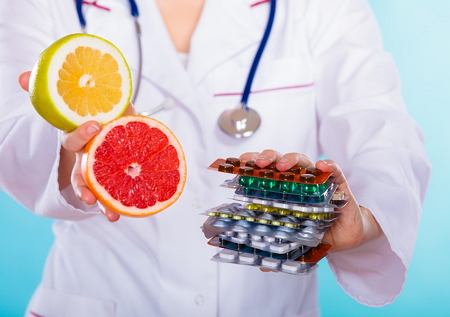Prenatal Vitamins Before Pregnancy

Contents:
The Best Prenatal Vitamins Before Pregnancy
Taking vitamins while planning a pregnancy is an important point. That is the way to replenish the stocks of healthy and active substances the female body needs. This helps to safely conceive, bear and then having a healthy, full-fledged toddler.
Your doctor will define the vitamins to purchase at a pharmacy when planning a pregnancy. It all depends on specific features and needs of the organism. This can be either an entire complex, designed for the pregnancy-planning period, or just some particular drugs. Don’t forget, that fresh fruit, vegetables, herbs are natural and very useful sources of natural vitamins the woman's body needs at this stage.
Individual Vitamins
Almost all the vitamins should be considered prior to planning pregnancy because each of them performs a specific function in this important and crucial period in the life of each woman. Therefore, doctors mostly recommend taking entire complexes. However, further tests may reveal that the body is sorely lacking a couple of specific vitamins, while the others are normal. In this case taking individual drugs is more reasonable. The only way to specify the best is consulting your doctor.
Folic Acid (Vitamin B9)
90 % of experts appointed women to take vitamins with folic acid when planning pregnancy, because it is vital to concept a healthy baby.
This is vitamin B9 that:
- prevents development defects and pathologies in the neural tube, which later forms the spinal cord;
- helps formation and maturation of the placenta;
- protects from spontaneous abortion.
Therefore, to avoid various complications, irregularities and abnormalities at conception or during the fetus development the specialists recommend taking folic acid (or acid containing drugs) long (2-3 months) before the pregnancy.
In addition, the nature has some vitamin B9 containing products such as:
- greens;
- vegetables with dark green leaves (broccoli, green onion, spinach, parsley, cabbage, green peas, lentils, beans, asparagus, soybeans, carrots, beetroot, tomatoes);
- walnuts;
- citrus;
- watermelons;
- peaches;
- wheat germ;
- coarse wholemeal flour (respectively, all bakery products);
- buckwheat, oat, rice groats;
- millet;
- tomato juice;
- kefir;
- sunflower seeds;
- animal products: cottage cheese, beef liver, cheese, caviar, cod liver, egg yolk.
The following information about folic acid is very important for women . The heat treatment destroys nearly 85 % of this useful and vital vitamin. Therefore, nutritionists and doctors recommend to cook foods with a high content of vitamin B9 on the steam or to eat them raw (that is more useful). Naturally, this rule does not apply to the liver and egg yolks. Planning a pregnancy you need to provide the female body with sufficient supply of folic acid (400 mcg daily).
Retinol, Carotene (Vitamin A)

Any doctor in response to the question, what vitamins a woman should take when planning a pregnancy, will answer that she can’t do without retinol and carotene.
Although this substance is specific and has some nuances of use, its consumption is crucial at this stage because:
- it plays an important role in the embryonic development;
- promotes the full, healthy development of the fetal heart, kidneys, lungs, eyes, bones, CNS, circulatory and respiratory systems;
- it is important for the mom’s health: it actively promotes postpartum regeneration, tissue regeneration;
- helps to maintain normal vision;
- protects against colds, respiratory infections, flu;
- promotes metabolism without pathologies that is very important for the fetal development.
On the one hand, retinol and carotene are essential when planning pregnancy. On the other hand, their excess in the female body can lead to a variety of complications and pathologies both in the period of conception and gestation. Therefore, it is recommended to plan the pregnancy only six months after you end the administration of the single vitamin A. It is better to take it along with other vitamins or consuming products with high contents of retinol and carotene.
They include:
- animal products: cream, fish oil, cottage cheese, butter, cheese, liver, egg yolk;
- some cereals;
- vegetables, yellow-red or green fruit: rowan, briar, apricots, sea-buckthorn, black currant, yellow pumpkin, red peppers, watermelon, spinach, cabbage, parsley, celery leaves, fennel, carrot, green onion, sorrel, green pepper;
- herbs: nettle, clover, dandelion.
The overdose of the vitamin A may cause congenital pathologies in the baby. This makes women planning a pregnancy abstain from isotretinoin (a popular substance to combat skin rashes, blackheads and acne). It is commonly known as "Roaccutane», «Accutane», «Acnecutan», sold in the form of ointments with Tretinoin (" Retene-A"). Be sure to consult specialists before using any medications in this period.
Thiamine (Vitamin B1)
Planning a pregnancy, women should take thiamine because it:
- is very important for the formation of the baby’s healthy nervous system;
- is necessary for the metabolic cycle to generate energy from the productive absorption of carbohydrates.
Thiamine is rarely prescribed in the form of an individual drug. Usually it is enough to take it in the complex of vitamins prescribed by your doctor. Of course, you can replenish the deficiency of thiamine from natural sources, mainly consuming foods of vegetable origin.
They include:
- cereals;
- grains;
- beans;
- grain sprouts;
- coarse wholemeal flour;
- hazelnut;
- walnuts;
- almonds;
- apricots;
- briar;
- red beet;
- carrot;
- radish;
- onion;
- cabbage;
- spinach;
- potatoes.
Not only thiamine, but also all the vitamins B group are crucial at the planning-pregnancy period to conceive and gestate a healthy child.
Riboflavin (Vitamin B2)
Riboflavin is commonly referred to as the "vitamin of the growth".
At the stage of planning a pregnancy it performs the following functions:
- normalizes the metabolism of iron and other nutrients in the female body;
- promotes healthy development of the baby’s skeleton, nervous system, muscles.
Therefore, women planning a pregnancy should assure the continuous supply of riboflavin before the conception.
Vitamin B2 is found in:
- animal products: milk, liver, eggs;
- grain legumes;
- briar;
- spinach;
- cabbage;
- leaf vegetables;
- tomatoes.
Thiamin and Riboflavin are the most popular vitamins from B group at the stage of planning a pregnancy. Women need consume medications and foods containing them.
Ascorbic Acid (Vitamin С)

If a woman plans to have a baby soon, she will need to provide her body with the universally known vitamin С.
It plays an important role while planning a pregnancy:
- it enhances immunity, which tends to weaken during the gestation;
- neutralizes toxins in the female body that may cause harm to the unborn child in the future;
- destroys various bacteria;
- reduces inflammatory reaction;
- increases working efficiency and stress resistance;
- strengthens the connective tissue.
All the mentioned above points are very important for women planning a pregnancy, as at this period they should do their best to improve their health.
Vitamin C can be found in plant products such as:
- briar;
- dogwood;
- blackcurrant;
- rowan;
- sea buckthorn;
- citrus;
- red pepper;
- horseradish;
- parsley;
- green onion;
- dill;
- watercress salad;
- red and white cabbage;
- potatoes;
- turnip;
- vegetable plant;
- medicinal plants: nettles, glechoma, lovage, wild fruits.
Women planning a pregnancy should take enough vitamin C in order to avoid problems conceiving and gestating a baby.
Calciferol (Vitamin D)
To avoid crumbling teeth in pregnancy, you should take preventive measures. Planning a pregnancy, supply your body with the necessary amount of vitamin D, and you won’t face such problems. The matter is the growing fetus needs calciferol, if he lacks it, he starts “suck” it from the mother’s body.
Vitamin D is necessary to:
- avoid skeleton pathologies in the fetus;
- preserve healthy teeth in the mom;
To ensure that your body has enough of this useful vitamin, planning a pregnancy it is recommended to include in the diet the following products:
- fish oil;
- Atlantic herring;
- cod liver;
- sardines in oil;
- mackerel;
- salmon;
- eggs;
- milk;
- butter;
- mushrooms;
- nettle;
- yarrow;
- spinach.
Seafood is the primary natural source of vitamin D, so planning a pregnancy pay a special attention to them. There is another vitamin essential for the female body at this stage left.
Tocopherol (Vitamin E)
The expectant mother can’t do without the vitamin of the eternal youth and beauty.
It plays a very important role in the formation of the fetus:
- provides cells with the necessary amount of oxygen (prevents hypoxia in the fetus) and nutrients;
- has an anti-inflammatory effect;
- enhances the immunity;
- stabilizes cell membranes;
- protects against a miscarriage.
It is recommended to start taking vitamin E long before the conception to avoid complications of the pregnancy. You can either take in the form of pills, or include foods rich in tocopherol in your diet .
It can be found in:
- unrefined vegetable oils: cottonseed oil, sunflower oil, soybean oil, peanut oil, flaxseed oil, sea-buckthorn seed, corn oil;
- nuts: walnuts, almonds, hazelnuts, peanuts, pistachia, cashews;
- dried apricots, sea-buckthorn, viburnum berries, briar, dried prunes;
- spinach, sorrel;
- calamari, salmon, zander;
- oatmeal, wheat, pearl barley.
Now you know what vitamins to take planning a pregnancy. This is a comprehensive list of vitamins crucial for conception and gestation of a healthy baby. After an examination your doctor can prescribe them both in the form of individual drugs (in case if your body lacks a particular substance) and in vitamin complexes.
Vitamin Complexes
Very often future parents want to know the name of the best vitamin complex for those who are planning a pregnancy. However, even specialists can’t agree on this matter, as it is very individual. It is recommended to make the complete examination first, and then select a suitable medication upon the received results.
The most popular are vitamin complexes designed specifically for those who plan a pregnancy in the nearest future:
- "Wellwoman";
- "Alphabet" (specially designed for expectant mothers);
- "Elevit";
- "Vitrum Prenatal”;
- "Mutitabs";
- "Teravit Pregna";
- "Angiovit".
Despite the fact that today there is a big choice of vitamin complexes, the parents-to-be and especially expectant moms should understand that the best vitamins are natural, high quality food products. If you include them into the diet and consume regularly, you will face no problems gestating a healthy child.